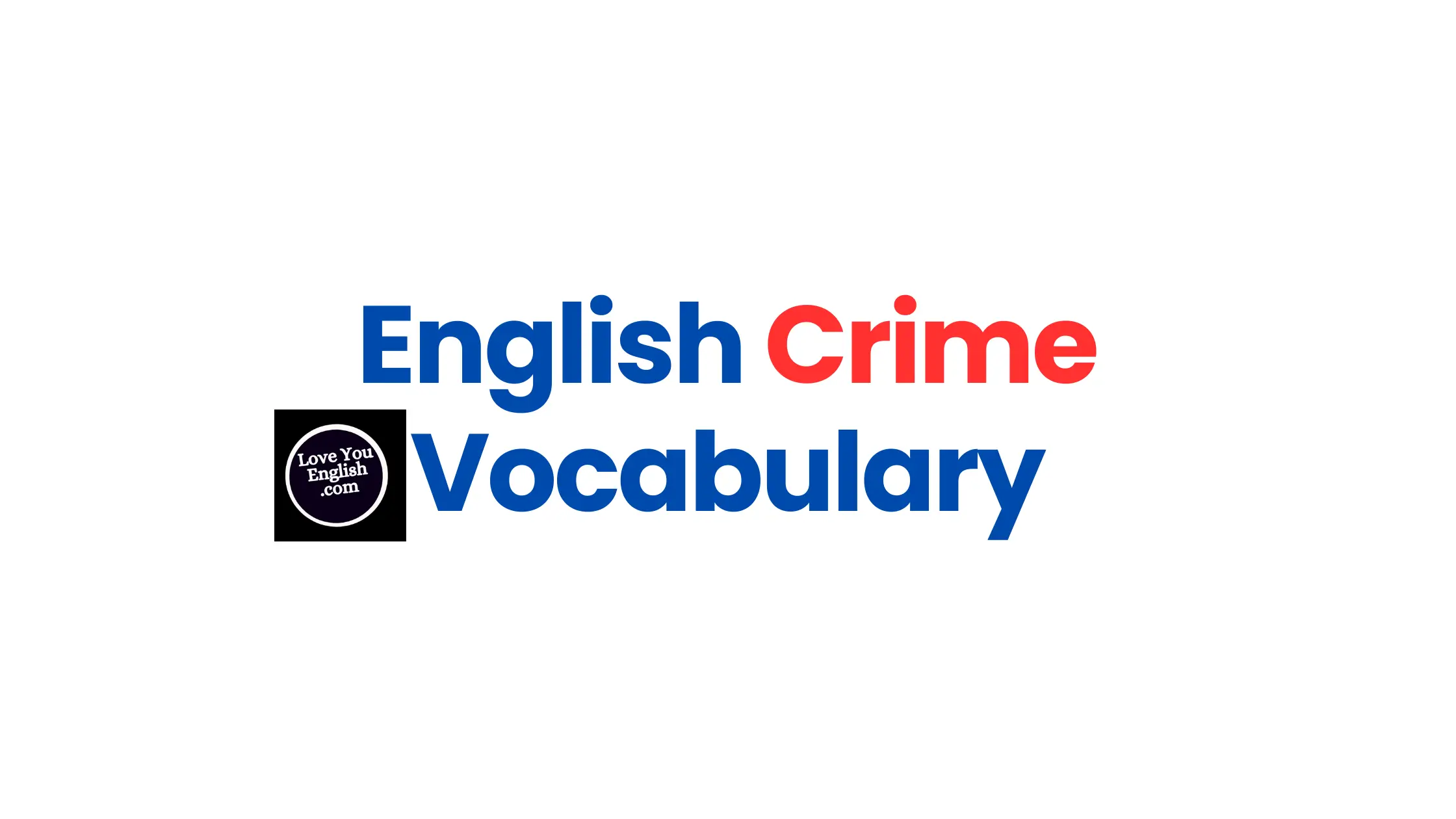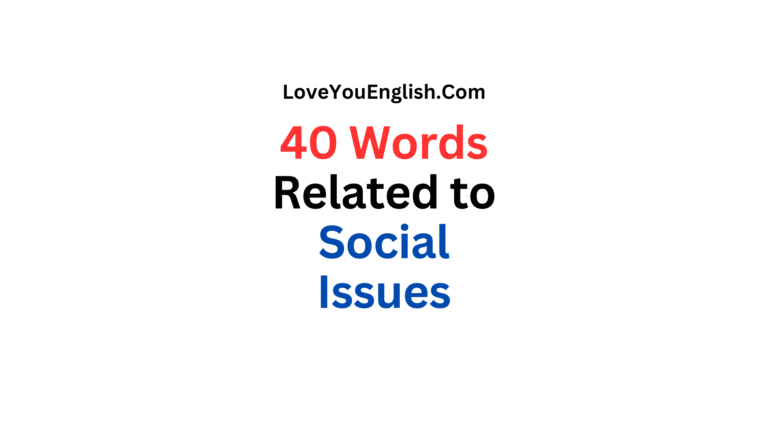English Vocabulary: 30 Crime Words in English
Crime is a serious issue that affects every society around the world.
From petty theft to horrific acts of violence, there are many different types of criminal activities.
Today, we’ll explore 30 common words related to “crime” that you might hear in the news or read about in books and movies.
Crime
Let’s start with the basics. A crime is an illegal act that violates a law and is considered a threat to public safety and order.
Crimes can range from minor offenses like jaywalking to major felonies like murder.
Felony
A felony is a very serious crime that usually results in heavy fines and long prison sentences if convicted.
Murder, rape, arson, and burglary are examples of felonies.
Misdemeanor
On the other hand, a misdemeanor is a less serious crime that results in lighter punishments like fines or short jail sentences.
Petty theft, vandalism, and public drunkenness are misdemeanors.
Arrest
When the police take someone into custody on suspicion of committing a crime, it’s called an arrest.
Arrests usually involve handcuffs, searches, questioning, and being transported to a jail or station.
Suspect
A suspect is someone who is thought to have possibly committed a crime based on evidence or witness testimony.
The police investigate suspects during their criminal case.
Motive
The reason why someone commits a crime is called their motive.
Greed, jealousy, anger, or ideology are some common motives behind criminal acts.
Evidence
Evidence refers to objects or information that can help prove whether or not a crime was committed and who did it.
Physical items, DNA, surveillance footage, and testimonies are all considered evidence.
Prosecutor
After someone is arrested, a prosecutor is the lawyer who represents the state and tries to prove the suspect committed the alleged crime in court.
Verdict
At the end of a trial, the verdict is the final decision made by the judge or jury about whether the defendant is guilty or not guilty of the crimes they were charged with.
Sentencing
If the defendant is found guilty, the next step is sentencing, where the judge determines the appropriate punishment according to established laws and guidelines.
Theft
One of the most common property crimes is theft, which means illegally taking someone else’s belongings without their consent.
Robbery, burglary, and shoplifting are all types of theft.
Robbery
Robbery specifically refers to theft that involves violence or threats against the victim in order to steal their belongings.
Using a weapon during a robbery makes it even more serious.
Burglary
Breaking into a building with the intent to commit a crime like theft is called a burglary.
Even if nothing ends up being stolen, illegally entering the premises is a crime itself.
Assault
Assault means physically attacking someone in a way that causes injury or puts them in fear of being injured.
Shoving, punching, kicking and any other unwanted physical violence qualifies as assault.
Battery
Battery is a more serious offense that refers to intentionally and unlawfully using force or violence against someone else.
Homicide
Any instance where one human kills another human is classified as a homicide.
Homicides can be intentional (murder) or accidental (manslaughter), but both are extremely serious crimes.
Murder
Of all crimes, murder is generally considered to be the worst.
Murder refers to the willful, premeditated killing of one person by another with malicious intent.
Manslaughter
On the other hand, manslaughter means causing someone’s death through reckless actions or criminal negligence rather than purposefully trying to kill them.
Arson
Arson is the criminal act of intentionally and unlawfully setting fire to a building, vehicle, or other piece of property.
Arson is extremely dangerous and can easily lead to injury or death.
Vandalism
While vandalism like graffiti or smashing windows is not as serious as arson, any act of intentionally damaging or destroying someone else’s property is still considered a criminal offense.
Fraud
Fraud means using deception or trickery to gain money, property, or services unjustly or illegally.
Tax fraud, insurance fraud, and pyramid schemes are common examples of fraudulent criminal behavior.
Embezzlement
A form of fraud, embezzlement occurs when someone who was entrusted with money or property illegally takes it for their own use.
Embezzlement is common in business and government settings.
Extortion
Extortion involves obtaining money, property or services from someone through force, threats, or other illegal means.
Blackmail and protection rackets are types of extortion crimes.
Racketeering
Racketeering refers to an ongoing pattern of extortion, money laundering, bribery and other illegal business practices often associated with organized crime groups like the mafia.
Bribery
Bribery means illegally offering money or favors to someone in a position of power or authority in order to influence their decisions or actions.
Smuggling
Smuggling is the crime of secretly transporting illegal items like drugs, weapons, or even people across borders and through customs in violation of immigration laws.
Money
Laundering The process of disguising money obtained through illegal means like drug trafficking as legitimate income is called money laundering.
It’s a way for criminals to hide and enjoy their ill-gotten gains.
Hacking
In the modern digital age, hacking computer systems and networks to illegally access data or cause disruptions is an increasingly serious cybercrime that can have devastating consequences.
White Collar Crime
The term white collar crime refers to non-violent illegal acts motivated by financial gain, often committed by business professionals, public officials, or others with specialized expertise.
Organized Crime
Organized crime describes the large-scale, coordinated criminal activities carried out by powerful, well-structured groups like the mafia that are involved in illegal businesses like drug trafficking, extortion, racketeering and more.
Final thoughts
While no one wants to be a victim of crime, it’s important to understand different criminal behaviors and the language associated with them.






